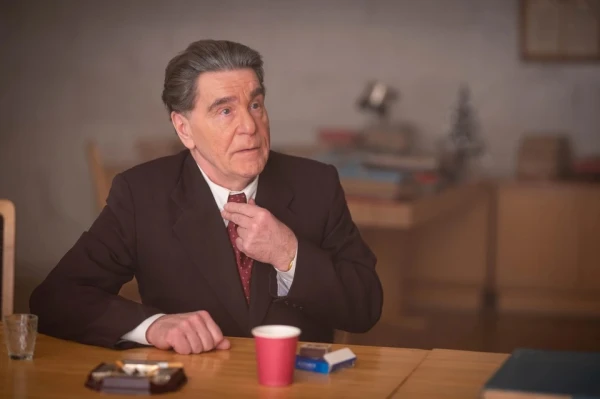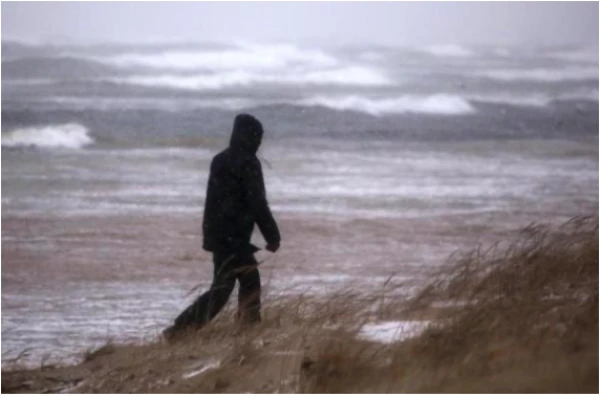
"Dear Willy" tells how to prevent nuclear war.
It is known that General Secretary of the Central Committee of the Communist Party of the Soviet Union Leonid Brezhnev and Chancellor of the Federal Republic of Germany Willy Brandt got along well, interacted at an official level, and concluded a number of important intergovernmental agreements. You may have heard that they also had unofficial contacts. However, few know that these secret ties, in no small part, saved the world from nuclear catastrophe during the Cold War. This is exactly what the series "Dear Willy" is about. REN TV star, television journalist Igor Prokopenko spent years collecting documents and recording testimonies from direct participants of those events to turn his archive into a compelling script (co-authored with Dmitry Novoselov).
So, the late sixties. Thanks to intelligence, the highest officials of our country come into possession of a plan by the United States to strike the USSR from the territory of the Federal Republic of Germany. Moreover, West German Chancellor Willy Brandt (Kirill Kyaro), who is pressured by the opposition and the States to sign a permit for the deployment of missiles, is unaware that the deadly weapon will be immediately put into action. What to do? The militant faction of the Politburo, led by Brezhnev's ideologist Mikhail Suslov (Vladimir Konkin), is determined: we must show America that we are ready to deliver a nuclear strike, for which we should immediately send nuclear submarines to the shores of Florida! And it has been only a short time since the Caribbean crisis!
Brezhnev (Sergey Makovetsky) understands that saber-rattling will only increase the likelihood of nuclear war. Secretly from Suslov and with the support of KGB chief Andropov (Igor Chernevich), he decides to contact Brandt and reveal to him America's insidious plan. But reaching out to the head of the government of a formally hostile capitalist state openly means signing his own death warrant (it was tough for them without the Internet!).
And then a journalist-translator Vardanov (Sergey Marin) and a Germanist Pletnev (Alexey Rozin) are sent to the Federal Republic of Germany — supposedly for a literary conference. Moreover, Vardanov is a former career intelligence officer, and Pletnev was imprisoned in a German concentration camp during the war and can reach out to Brandt's closest associate — Minister for Special Assignments Egon Bahr (Martin John Cook). Upon arriving in West Berlin, Vardanov and Pletnev become the targets of three intelligence agencies — the GDR, the FRG, and the USA, each of which does everything to keep them away from Chancellor Brandt. They are in mortal danger every second — too many would like them to be forever swallowed by the murky waters of the Spree...
Brezhnev – a joker and not a senile
Sergey Makovetsky plays the Soviet general secretary with minimal makeup and does it brilliantly. His Leonid Ilyich has nothing in common with the stereotypical senile with indistinct speech, as Brezhnev is often portrayed even in serious cinema. Makovetsky's character is a virtuoso strategist who avoids straightforward solutions to avoid confrontation with Suslov and the Politburo, but he thinks clearly and creatively — outside the party dogmas that put the world on the brink of catastrophe. The politician in the series is lively and three-dimensional — he tells jokes about himself and makes salty quips. And he does all this remarkably organically, without veering into caricature.
A great tandem was formed between Marin and Rozin. Vardanov is a brute and an intellectual with hand-to-hand combat skills, easily charming women, our Soviet agent 007, only in a simple sheepskin coat and a fur hat. Pletnev is his opposite: a bumbling fool trying to prove his loyalty to his wife — an actress from the television show "Cabaret '13 Chairs'" (Marietta Tsigal-Polishchuk). Despite the seriousness of the plot of "Dear Willy," there is room for humor and comedic gags in the series: the pair of friends finds themselves in a strip club, where a fight is inevitable, or they drink with a CIA agent (Vilma Kutavichyute), who has been ordered to eliminate them.
The images of these characters with fictional names are based on real prototypes. Vardanov is based on Vyacheslav Kevorkov — a counterintelligence officer, journalist, and deputy director of TASS, who did much to conclude the Soviet-West German treaty of 1970 (by the way, Kevorkov became the prototype of the hero of Julian Semenov's novel "TASS is Authorized to Declare"). Pletnev embodies the traits of international journalist, Germanist, and editor of the "Soviet Culture" newspaper Valery Lednev, who was indeed the husband of the actress from "Cabaret '13 Chairs.'"
About a world hanging by a thread. Remind you of anything?
Perhaps the main virtue of "Dear Willy" is the lightness of the narrative. Historical dramas sometimes suffer from heaviness and overly serious intonation. But here you dive headfirst into a juicy spy story and undoubtedly believe in what is happening, despite the fact that Germany was filmed in the "Moskino" pavilions and in the vicinity of Kaliningrad. You never stop believing in the German melancholy of Kirill Kyaro's character and in the extreme concern of the character played by the magnificent Konkin.
The world was once again hanging by a thread. But they succeeded — albeit at the very last moment, as is customary in spy stories. And even if in the finale Rozin makes you recall Dzhigarkhanyan in "Hello, I am your uncle!", and Brezhnev starts to resemble a kind wizard rather than a real general secretary — the catharsis comes by itself. Along with the parallels to the present day.













